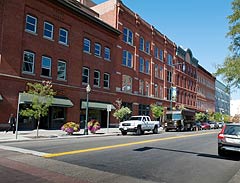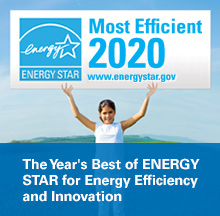In government owned buildings the government may allocate this deduction to the person or persons primarily responsible for.
Energy efficiency tax credit commercial buildings.
The 179d commercial buildings energy efficiency tax deduction primarily enables building owners to claim a tax deduction for installing qualifying systems and buildings.
Homeowners who made energy efficient improvements to their home can qualify for a federal tax credit but you must meet certain rules.
In 2018 and 2019 an individual may claim a credit for 1 10 percent of the cost of qualified energy efficiency improvements and 2 the amount of the residential energy property expenditures paid or incurred by the taxpayer during the taxable year subject to the overall credit limit of 500.
The 30 investment tax credits itc for solar energy and qualified fuel cell properties are extended to january 1 2017.
Information about form 5695 residential energy credits including recent updates related forms and instructions on how to file.
Energy efficient commercial building tax deduction.
The energy policy act of 2005 p l.
The 30 itc now also applies to qualified small wind energy property.
If the system or building is installed on federal state or local government property the 179d tax deduction.
The tax credit for builders of energy efficient homes and tax deductions for energy efficient commercial buildings have also been retroactively extended through december 31 2020.
A tax deduction of up to 1 80 per square foot is available to owners or designers of commercial buildings or systems that save at least 50 of the heating and cooling energy as compared to ashrae standard 90 1 2007 or 90 1 2001 for buildings or systems placed in service before january 1 2018.
Use form 5695 to figure and take your nonbusiness energy property credit and residential energy efficient property credit.
For more information see.
109 58 authorized the energy efficient commercial buildings tax deduction for expenses incurred for qualified energy efficient building investments made by a building owner.
Tax credits for residential energy efficiency have now been extended retroactively through december 31 2020.
In an effort to curb this trend and encourage broader energy efficiency section 179d allows qualifying building owners and businesses to receive an up to 1 80 per square foot tax deduction for their energy efficient buildings placed into service during all open tax years typically the look back period for buildings is three years with.
For more information see the 179d commercial buildings energy efficiency tax deduction page.
Federal income tax credits and other incentives for energy efficiency.
The tax credit for builders of energy efficient homes and tax deductions for energy efficient commercial buildings have also been retroactively extended through december 31 2020.
The residential energy credits are.
Extension of energy investment tax credits.








